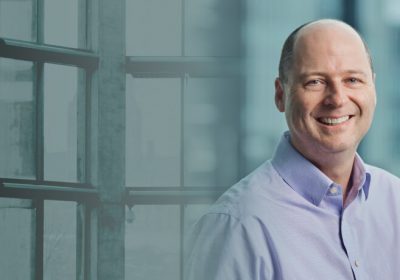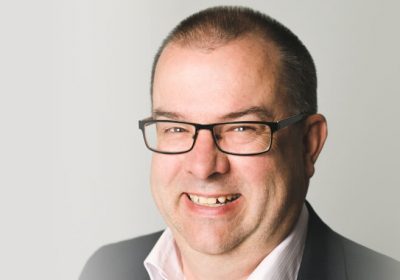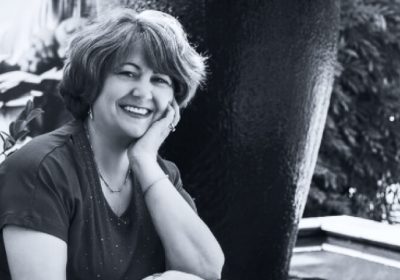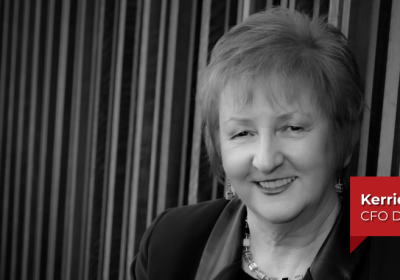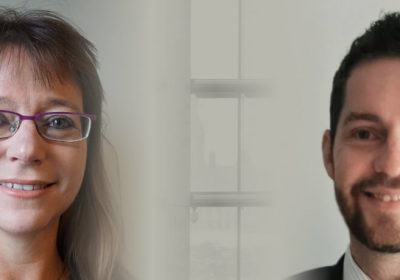
- Author: Johanna Leggatt
- Posted: October 20, 2021
‘Don’t be afraid to hire people better than you’
Transurban CFO Michelle Jablko has become a strong leader through mentoring, learning from customer teams, and surrounding herself with smart staff
All careers contain moments of serendipity and happenstance, and Transurban CFO Michelle Jablko’s path has been no different.
Before she joined the ASX-listed toll road company, Jablko was the CFO of ANZ Bank and a mentor for finance leaders through the Financial Executives Institute (FEI) program. It just so happened that, in 2018, one of her mentees worked at Transurban.
“I felt that I received some insight into Transurban a few years before I even worked there,” says Jablko, who remains a mentor within the FEI program.
“And it’s quite nice actually coming in to work now and seeing that person I mentored some years ago and to notice how much they’ve grown.”
Jablko mentors executives at various stages of their career, many of whom share a common, highly relatable ambition: to make an impact within their organisations.
“All of the mentees have so far been very much focused on how they might back themselves to take the next leap in their career and what that might look like,” she says.
“We focus on the breadth of their careers and where they’re ultimately headed, so it’s not just about the next job or performing in their current role really well — mentorship is about overall career development.”
Jablko says she has learned as much from her mentees in the FEI program, as they have from her.
“Hearing people work through their internal thought processes in their own careers is helpful,” she says.
“I lead a very diverse team of people these days so the (mentor) role helps you put yourself in the shoes of the people that are on your own team.”
Such insights, Jablko notes, also serve to highlight the depth of interest in personal career development within teams.
“When you mentor people individually you notice that career-development focus, but when you are leading a big team you may not be as thoughtful about it, so it’s a good reminder.”
FINDING YOUR BACKERS
A large part of CFO success, of course, is receiving the right support from the right people, and Jablko is a firm believer that you need people in your corner.
“It’s one thing to have mentors, but I think it’s also important for everyone to have people that really back them and would encourage someone else to take a risk on them, or to take a risk on them themselves,” she says.
Networking is one avenue for achieving this kind of support, but as Jablko notes, the word ‘networking’ is often hamstrung by its association with languorous rounds of golf.
“I’ve never done that, I am terrible at sports,” she says with a laugh.
“So the focus for me has been about how to build trust with someone; you have to network in a way that makes sense for you.”
One of Jablko’s former bosses gave her some mid-career networking advice that has stayed with her to this day: if someone is giving you their time, always take something interesting to offer the other person.
“So I would take a piece of research or something that was interesting for their business, and I found that if I did that it actually opens people up to wanting to talk to you and help you,” she says.
“That was a good learning experience.”
CONTINUAL LEARNING
In fact, learning from others has become a defining quality of Jablko’s career, which she began at Allens law firm before she found her calling in investment banking.
During her time as managing director at financial services firm UBS, Jablko was routinely exposed to clients with considerable gravitas.
“The best training was going to meetings — you can only learn so much from textbooks — and having senior people throw to me, which gave me a strong sense of accountability early on,” she says.
“I found it energising and empowering to be in meetings with people who were running serious businesses, and have them care about the answers I gave them.”
This early exposure to immense talent is undoubtedly the reason Jablko’s believes good leadership involves “being comfortable hiring people who are better than you”.
“When I started at ANZ, two of my closest reports had 60 years of experience between them at the company and I knew there was no way I could ever match them in terms of their knowledge of the bank,” she says.
“So I thought I would work with them like they’re my advisors, and still take ultimate accountability, while relying on them for the advice on the content.
“After six months, they both said that they had found my approach really empowering, and so since then I have always focused on, ‘how do I find the people who are much better at what they do than me?’ “
Jablko also prizes team diversity, aiming for a mix of gender, leadership styles, skills, background, and education within her team.
“At one point in my career, I had a team that was probably 75 per cent male, and they were all absolutely great for the job and I could see why they were there,” she says.
“But it was when we got together, I noticed that the collective decision-making could be one-dimensional and it was a real wake-up call for me to realise that it was important to focus on not just the best person for the job but the best person in the context of the team as well, so the team is making the best collective decisions.”
The 2018 Hayne Royal Commission into Banking took place during Jablko’s tenure at ANZ, and was another deeply formative time in her career.
“Having lived through a royal commission, I understand the importance of social licence and how vital it is to listen to your customers and to the community,” she says.
“While the CFO role is the voice of the shareholder, you don’t have a right to that voice if you’re not listening to your customers.”
A MENTOR’S ADVICE FOR ASPIRANTS
Modern CFOs are working in a complex world of ongoing disruption, technological upheavals and changing customer service expectations, as well as a raft of pandemic-induced challenges and pivots.
Jablko’s advice for those with their eye on the c-suite?
“If you aspire to be a CFO then come at it with breadth, not just depth, because you’re there to drive performance and not just report on performance,” she says.
“So you have to think about whether you’re creating long-term value for your shareholders, and there may be a decision that gives you a short-term win but then you have to deal with the problem again the following year.”
Hence the need, she says, to stay connected to those on the front-line, the pointy end of transactions, negotiations and customer service.
“In both my CFO roles, I have made sure I talk to customer teams and really understand what life is like on the front line because you can’t do the CFO job well if you don’t know what life is like for those people trying to drive outcomes for customers,” she says.
There is no “single-purpose CFO”, Jablko notes, nor is there one perfect CFO template for aspirants to copy, but rather it comes down to matching the right CFO to the right company.
“I’m a particular kind of CFO, so I wouldn’t think I am right for all companies, and I think the right CFO for a company depends on what that company needs,” she says.
“So I have been lucky in getting roles where they’ve needed broad corporate finance experience and leadership capabilities, as well as someone who could act as a partner for the CEO.
“But other organisations want someone with depth of financial control, someone who is good at setting up the systems, so I don’t think that it’s one-size-fits-all.”
However, there are some highly desirable traits that are invaluable across all CFO roles, Jablko says.
“Being a good leader of people and being able to work well with your peers and other stakeholders is important because it is a role that requires a lot of influencing and bringing people along with you,” she says.
Technical knowledge matters, she notes “but EQ and grit count for a lot more”.
“I’ve got teenage kids and that’s what I tell them as well: the academic side doesn’t matter as much as your EQ score once you enter the workforce,” she says.
Finally, a last piece of mentoring advice: don’t listen to the naysayers, the insincere boosters or the pundits from the sidelines.
It’s the work that matters.
“When I got the ANZ job, there was a lot of press about whether it was a good or bad appointment and so at the time I thought, ‘Look, it doesn’t matter because it’s what I do that will matter and whether people say I’m going to do a great job or a bad job, none of that matters until I have done the job,” Jablko says.
“Equally, don’t believe your own hubris and think that because everyone thinks you’re great, you will be great.
“This approach has really stuck with me.”
To learn more about Financial Executives Institute of Australia (FEI), the pre-eminent professional organisation for CFO’s and senior financial executives in Australia Visit: www.fei.org.au
In recognition of the current CFO gender imbalance and the proven benefit of mentoring in preparing women for executive positions, FEI has established the PAVE 6 month mentoring scholarship for females aspiring to the CFO role who may not otherwise have access to our flagship mentoring program. For 2021/22, the PAVE scholarship program is open to senior women working in the finance teams of technology companies.
For further details visit https://www.fei.org.au/mentoring/pave-2/



